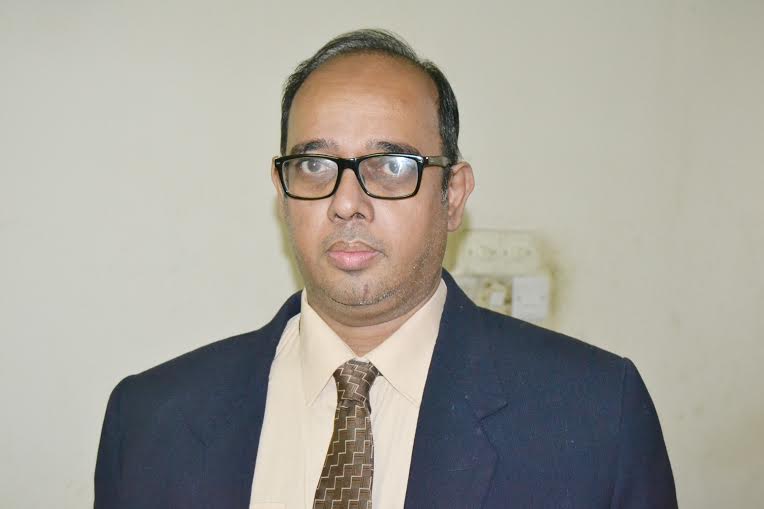Online education, exam and evaluation procedures

(Continued from last day's section)
From the preprimary education to the highest level of education, the importance of online education is increasing at an exponential rate due to the pandemic. Not only classroom education, but also international lecture series, conferences, seminars, symposiums are regularly being held online.
Duijn (2014) depicted that online video can be a relatively time-efficient instructional method to enhance traditional classroom experiences and could be especially beneficial in situations where traditional instruction is not possible due to geographic or economic reasons. Mishra et al.(2020) argued a holistic picture of ongoing online teaching-learning activities during the lockdown period including establishing the linkage between change management process and online teaching-learning process in education system amid the COVID-19 outbreak so as to overcome the persisting academic disturbance and consequently ensure the resumption of educational activities and discourses as a normal course of procedure in the education system. Elfirdoussi, et al.(2020) described that in online learning, the latest technology needs to be used to enhance the learning process and interactions between professors, students, and technicians. It may be identified as a significant factor that can either encourage or hinder student and professor usage of e-learning. Sebbani, et al. (2021) described that at the Marrakesh Medical School (FMPM), it is necessary to institutionalize online education which must be complementary and not a substitute for the usual classes. Having a more holistic approach to the students’ training must be adopted in post pandemic period taking into account the mental impact of COVID-19 on students as well as improving the security and technology of virtual platforms. Dhawan (2020) depicted that many academic institutions that were earlier reluctant to change their traditional pedagogical approach had no option but to shift entirely to online teaching–learning. Singh (2020) argued that Delhi University started its online exams after conducting mock tests but However, students reported website crashes on first day of their exams. Even Singh (2020) commented that experts believe current online examination model would widen inequality.
The world is fighting together against
the pandemic and in this critical situation effective
integration of online education has become the need of the
hour. In this regard, a distinct proctorial system must be
incorporated immidietly
In Bangladesh after a long time UGC has finalized a guideline for the public universities to hold examinations online in order to recover from the loss caused by the Covid-19 outbreak from early 2020. Instead of the conventional question system, students will have to answer creative questions from a shorter syllabus that will be prepared in a way that a student cannot answer without having proper knowledge on the subject. The university authorities will have to ensure that the students do not copy their answers or use any other unfair means during the exams. To this end, students can be given creative assignments, the guideline reads. The UGC guideline also stipulates that the universities can conduct laboratory tests online. However, if they fail to take an online laboratory test on any subject, then those will be taken in person in accordance with the hygiene rules once the current COVID situation becomes normal.
Some good qualities of Private universities in Bangladesh are practicing online and offline education simultaneously before pandemics. However, as pandemic started good private universities started full online practices in Bangladesh following the permission form the UGC, Bangladesh last year. East West university, Bangladesh is a pioneer to maintain quality assessment of the student. Their distant proctorial assessment procedure is very much effective for Bangladesh as student can be assessed in a transparent manner.
On May 7,2020 the University Grants Commission (UGC) published a guideline on conducting courses online in light of the prevailing coronavirus pandemic, including teaching, taking exams, their assessment as well as admission for private universities. Assessment rubrics, by setting benchmarks for student learning and achievement, are effective tools for evaluating a wide variety of student learning activities. And beyond providing teachers with helpful guidelines for student assessment, rubrics also improve learning because students can understand the evaluation criteria and take them into account as they complete their work. Budhai(2020) wrote an article entitled “Fourteen Simple Strategies to Reduce Cheating on Online Examinations”. The writer put following advices: Create questions that require higher order thinking; Use varied question types; Creatively remind students of academic integrity policies; Require students to sign an academic integrity contract; Restrict testing window; Set-up the exam to show one question at a time; prohibit backtracking; Change test question sequence; Offer different versions of the same test; Allow for only taking the test once; Plan for “technical issues.” Delay score availability; Refrain from using publisher test banks verbatim; Protect test question answers.
The world is fighting together against the pandemic and in this critical situation effective integration of online education has become the need of the hour. In this regard, a distinct proctorial system must be incorporated immidietly. (Concluded)
Professor Muhammad Mahboob Ali is an expert in the field of Macro and financial economics, entrepreneurial management and ICT, Dhaka School of Economics, Constituent Institution of the University of Dhaka, Bangladesh



